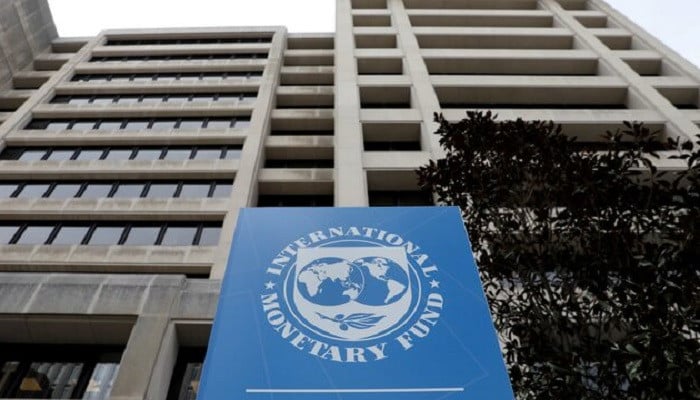The International Monetary Fund (IMF) on Thursday said Pakistan has made notable progress toward a staff-level agreement on key economic reviews, following intensive talks on fiscal reforms, financial stability, and measures to strengthen economic resilience.
An IMF team, led by Iva Petrova, visited Karachi and Islamabad from September 24 to October 8, 2025, to hold discussions on the second review under the Extended Fund Facility (EFF) and the first review under the Resilience and Sustainability Facility (RSF).
“The IMF mission and the Pakistani authorities made significant progress toward reaching a Staff Level Agreement (SLA) on the second review under the 37-month Extended Arrangement under the EFF and on the first review of the 28-month Arrangement under the RSF,” Petrova said in a statement issued at the conclusion of the discussions.
“Programme implementation remains strong, and broadly aligned with the authorities’ commitments. Significant progress was made in the discussions in several areas, including sustaining fiscal consolidation to strengthen the public finances while providing needed flood recovery support; ensuring inflation remains durably within the SBP’s target range by maintaining an appropriately tight and data-dependent monetary policy; restoring the viability of the energy sector by implementing regular tariff adjustments and cost-reducing reforms; and advancing structural reforms to reduce the footprint of the state, strengthen governance and transparency, foster a more competitive business environment, and liberalise commodity markets. Productive discussions were also held on the authorities’ reform agenda to strengthen climate resilience, including the completion of reform measures under the RSF.
“The IMF team and the authorities will continue policy discussions with a view to settling any outstanding issues.
“The IMF team wants to express its sympathy to those affected by the recent floods, and is grateful to the Pakistani authorities, private sector, and development partners for many fruitful discussions and their hospitality throughout this mission.”
Meanwhile, Pakistan and the IMF concluded review talks on Wednesday for the completion of the second review under the $7 billion Extended Fund Facility (EFF) and the first tranche of $400 million under the Resilience and Sustainability Facility (RSF) of $1.4 billion.
The IMF has set a deadline for obtaining approval from the Economic Coordination Committee (ECC) of the Cabinet for the abolition of two schemes and the tightening of the third one within the current month.
On the tariff rationalisation plan, both sides agreed that the two schemes under the baggage rules and the gift scheme for importing cars would be abolished. For the third scheme, the Transfer of Residence, vehicles will only be imported from a country where the individual has stayed for at least one year, and misuse of this scheme will be curtailed.
One official commented that all vehicles, whether from Japan or the UK, are imported to Dubai first and then brought into Pakistan, so the misuse of imported cars must be curtailed.
Pakistan and the IMF are still working to evolve a consensus on the release of the GCD Assessment report, which remains a bone of contention between the two sides. According to insiders, the government established a task force to conduct a detailed review of the vague anti-corruption framework and shared it with the IMF. The task force recommended that the FBR notify draft rules about the “Declaration of Assets of Civil Servants serving in Basic Pay Scale 17-22 and their spouses.”
It also recommended making amendments in the Civil Servants Act, 1973, to allow for the publication of Assets and Liabilities of Civil Servants; making amendments in the Elections Act to mandate Non-Elected Advisors and Special Assistants to the Prime Minister to furnish their statement of assets and liabilities; and making necessary amendments in the NAB Ordinance and the FIA Act to ensure a clear mandate definition, prepare a joint offence list, and establish coordination mechanisms between the two agencies to work harmoniously on offences where both have jurisdiction.
Further recommendations include providing training on jurisdictional boundaries to officers of the NAB, FIA, and Provincial Anti-Corruption Establishments (ACEs); making arrangements for repatriating investigating officers of the FIA posted at airports for processing immigration and tasking that responsibility to another force; and investing in technology, capacity building, and training of the FIA, NAB, and provincial ACE investigators to bring them on par with their regional counterparts.
Additionally, the task force advised conducting awareness campaigns to instill a culture of integrity among officials and educate the public on their right to seek disclosure of public information under the Right to Information Act and on the regulatory framework for reporting corrupt practices; making provisions for the appointment of lawyers through open advertisement based on specific expertise to ensure quality prosecution and for the appointment of independent members of the legal fraternity in special courts on judicial assignments; and empowering Provincial Anti-Corruption Establishments to handle money laundering cases at the provincial level.
The recommendations also include establishing a central coordination forum for assistance in investigation, forensics, intelligence sharing, and addressing jurisdictional issues; ensuring that Chief Internal Auditors are appointed within Ministries and Divisions as required by the Public Finance Management Act; and ensuring strict compliance with the State-Owned Enterprises (Governance and Operations) Act, 2023, and that government entities are run in line with section 36 of the Public Finance Management Act, 2019.


